Aged only 27 years and for his first presence on an ASI international event as a candidate, the German professional has transcended expectations in a contest marked by two records with 66 candidates and 63 countries represented.
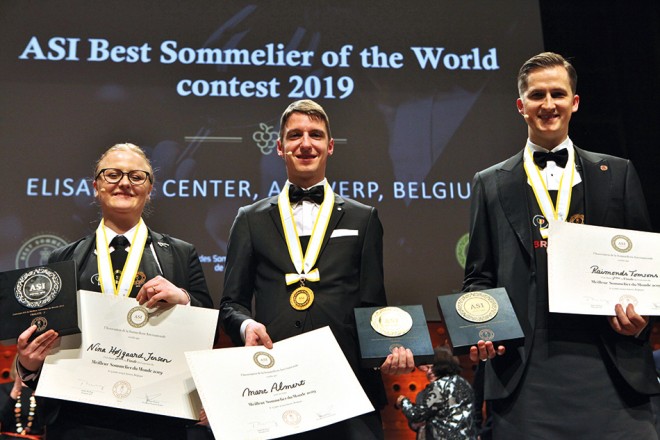
After six very intense days (contest, masterclasses, tastings), the 16th edition of the ASI contest for the Best Sommelier of the World ended with the victory of the German candidate, Marc Almert. He thus unbelievably completes his first participation in a competition of the Association de la Sommellerie Internationale and offers his country a second title after that won by Markus Del Monego in 1998, in Vienna.
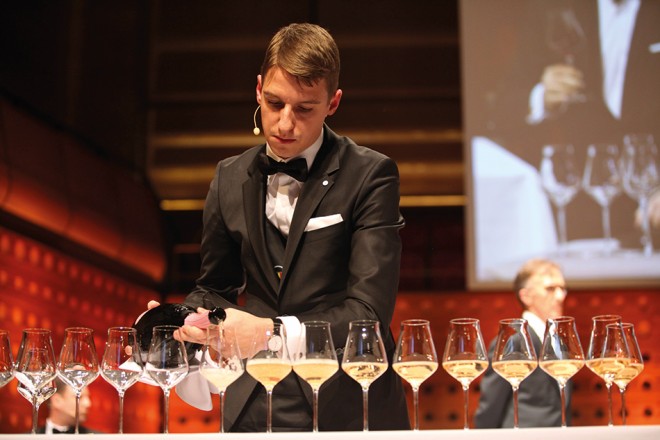
The strength of the German association was undoubtedly to be able to detect the potential of this candidate who won the Gaggenau Sommelier Award in 2016 and to have allowed him to prepare in the best possible conditions. In order to feel the atmosphere of these major events, he attended with great attention the Europe competition in Vienna in 2017 and the Asia & Oceania one in Kyoto in October 2018. “I could follow the events, meet other sommeliers and jury members,” the new Best Sommelier of the World explains. A dedicated trainer accompanied him throughout his preparation. A preparation he continued on a daily basis within the team of the two-star Pavillon restaurant at Hotel Baur au Lac in Zurich, Switzerland. French sommelier Aurélien Blanc, his director, himself awarded in France and Switzerland, then provided him his experience.
But before triumphing on the stage of the Elisabeth Center in Antwerp, Marc Almert and the 65 other candidates faced a selection without any real surprise: written tasting comments, beverage identification, questionnaire and service workshop. This first step, however, was enough to rule out sommeliers with solid experience in competitions. Thus the competition stopped at this stage for Eric Zwiebel, the French representative of the United Kingdom, or Fabio Masi, who defended once again the Swiss flag.
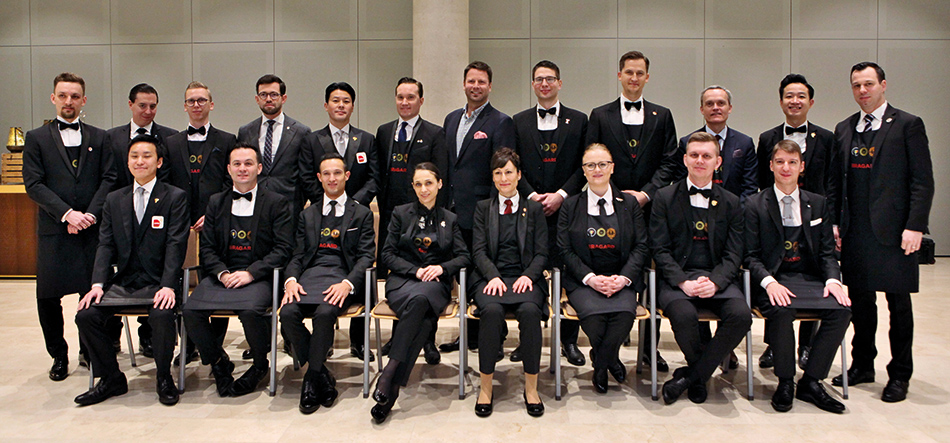
However, the technical committee had chosen to keep a record number of semi-finalists since on the third day of the event, they were still nineteen to believe in winning the title. A cast featuring the three continental winners: Raimonds Tomsons (Latvia) for Europe, Pier-Alexis Souliere (Canada) for the Americas and Wataru Iwata (Japan) for Asia & Oceania.
Four French candidates, representing different countries, were also at the appointment. Starting with David Biraud, the candidate for France, accompanied by Julie Dupouy (Ireland), Loïc Avril (Australia) and Antoine Lehebel (Belgium). And then we had all these new faces: Dane Nina Højgaard Jensen, Serb Vuk Vuletiç, Lithuanian Martynas Pravilonis, New Zealander Andrea Martinisi or Swede Fredrik Lindfors.
Marc Almert, for whom passing the selection was the initial objective, was not self-assured however at the time of the announcement of the qualified candidates. “In the quarterfinals, the theoretical part was difficult with a hard questionnaire and I thought it was going to be the end for me ...”
This semifinal led many favourite candidates to loose their illusions. A written test first left pride of place to the candidates’ personal expression as they had to develop the theme “What does a good sommelier represent for you?”. Not always easy to deal with in a foreign language.
Then two workshops finished establishing this second selection. In the wake of the partnership agreement signed with the Chinese wine-growing province of Ningxia, the red wine offered for the tasting was none other than a 2014 Cabernet Franc produced in China. Also tasted blind, three white wines, all from the Sauvignon grape variety (Sancerre from Domaine Vacheron, Perdeblokke from Klein Constantia from South Africa and Cuvée HG from Vignoble Erich and Walter Polz from Austria), with very different personalities have disturbed the candidates. Which then had to match (a first in a competition) each sample with a stone representative of its soil (flint, granite and limestone). A new beverage identification and a food and wine pairing over a dessert completed this first step.
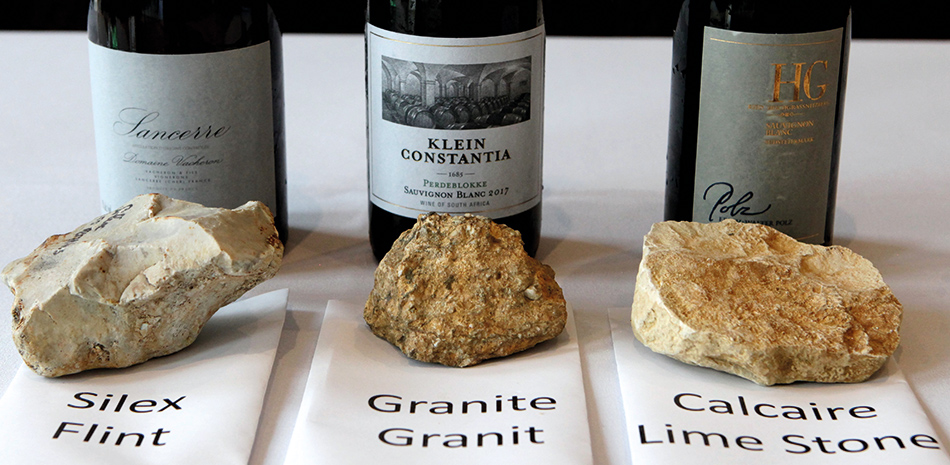
The next test took place in two stages. The service, with the decanting of two bottles of white wine–one of which was not at the right temperature–made the difference. This was followed by an exercise on the communication and promotion of Georgian wines with Belgian sommeliers, which offered a certain freedom to the candidates.
The announcement of the three finalists on the large stage and in front of hundreds of spectators looked like a massacre game. The main favorites were invited one after the other to join the audience, after having previously received the diploma attesting to their participation in the semifinal from ASI president Andrés Rosberg.
David Biraud and Julie Dupouy, silver and bronze medalists three years earlier in Mendoza, were among those ... Finally, only Raimonds Tomsons had been able to avoid the previous pitfalls and collect enough points to dream for a few minutes more of a double success (Europe-World) like Paolo Basso and Arvid Rosengren recently.
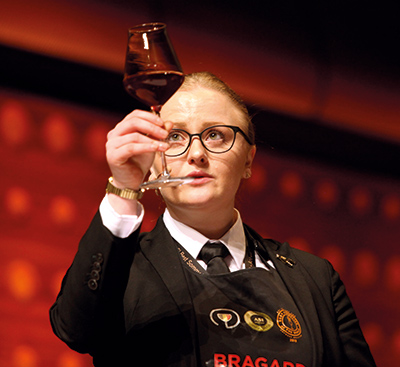
First on stage, Nina Højgaard Jensen was not too much disturbed by a technical incident with the microphone that allowed the audience and the thousands of people following the live broadcast around the world to lose nothing of her comments and explanations. A logical favorite in view of his experience, the Best Sommelier of Europe probably suffered from pressure in the first workshop (the service of an aperitif and especailly pouring a draft beer) that he could not complete. Enough to make him lose the thread of the competition and force him to settle for the bronze medal.
Marc Almert kept his self-control all along, adding humor and interpersonal skills with the “customers” who judged him. “When I realized that I was in the final, I said to myself ‘you have nothing to lose, it will be a great pleasure!’. I was lucky, unlike many of the candidates we talked about as favorites, because nobody looked at me. I was left alone and it was a great advantage ...”
Jean Bernard
— — — — — — — — — — — — — — — — — — — — — — — — — — — — — — — — — — —
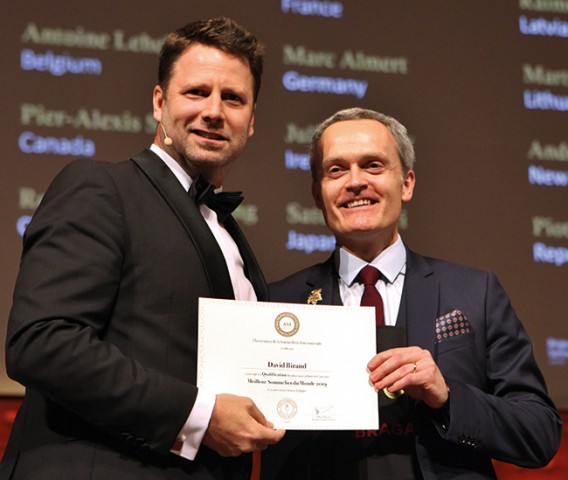
David Biraud and Eric Zwiebel have in common that both have represented the French sommellerie in international competitions organized since 2006. The Alsatian has been on the podium of two European competitions in 2006 and 2008 and on the world podium in 2007 in Rhodes. Rejected during the selection for the 2010 world, he then wore the colors of the United Kingdom, his adopted country, without reaching the final.
From 2010, David Biraud, native from Vendée, has dominated the national selections obtaining the bronze at the World competition in Santiago de Chile and the silver in Mendoza. He also won the European silver medal twice (in Strasbourg and in San Remo) and bronze in Vienna.
Both also have another thing in common, they decided to turn the page of the contests. A choice dictated by his underperformance, as he finished only 39th, for Eric Zwiebel. A carefully considered choice announced well before the contest for David Biraud.
— — — — — — — — — — — — — — — — — — — — — — — — — — — — — — — — — — —
With a record number of participants, this Contest of the Best Sommelier of the World that came to Belgium for the third time has benefited from a flawless organization from the Guild of Sommeliers of Belgium. However, given the development policy of ASI and the budgetary burden of such an event, the question of the evolution of the event will inevitably arise.
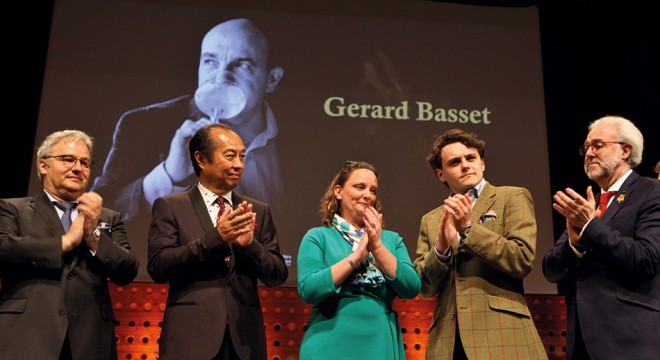
To envisage a first continental selection would be a track to study in order to welcome in the final phase only the best of the best candidates ...
Another inevitable issue: the succession of Gerard Basset at the head of the contests. Though the technical committee has grown with the integration of Arvid Rosengren and Olivier Poussier and a greater responsibility taken over by Markus Del Monego and Andreas Larsson, this team will need in the coming weeks a leader giving future directions. As from November 2020 (from 17 to 20), they will be back in Cyprus, the host country of the European competition.